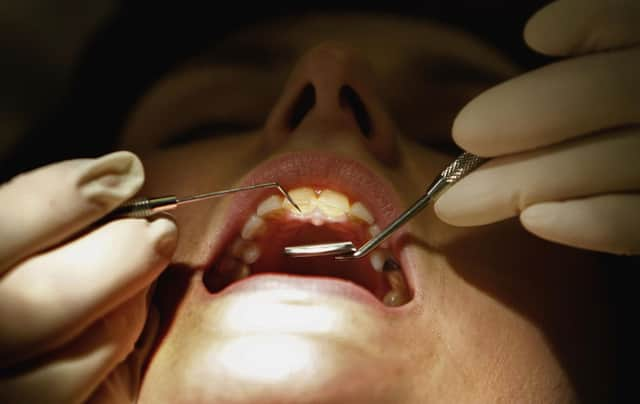Martin Lewis: Do you pay for dentistry and opticians? Here's a little-known way to cover the cost


In a nutshell: you pay directly for key treatments, send off the full receipt afterwards and the plan gives you the cash back up to an annual limit (the more you pay, the bigger the limit). Even if you have a PMI policy, these can still be useful and lucrative. Let me take you through my five need-to-knows.
1. The core is dental and optical treatments... If you or your family wears contacts/glasses and gets annual dental check-ups, cash plans are likely a winner. With the best policies, if you will max the claim back just on these two categories, you get back more than the policy cost, so owt else is a bonus.
Advertisement
Hide AdAdvertisement
Hide AdFor example, with the Bronze policy from www.hiveinsure.co.uk, which is one of my top picks for individual cover…
Y ou pay £9.16 per month (£110 per year)
You can claim up to £70 optical treatments (sight tests, prescriptions, glasses, contacts)
You can claim up to £70 routine dental treatments (check-ups, fillings, etc)
Max both out and you claim £140 on £110 plan
So that means if you’ve any more to claim, you’re quids in.
And there is still quite a lot more you can claim. For example, this plan includes £140 per year for dental accidents, £150 per year for therapies (physio, osteo, chiro, acupuncture), £125 per year for consultations and tests (physician or surgeon & PET, CT or MRI scans), £17.50 per day for hospital admissions and £100 per child for paternity or maternity.
So tot up how much you currently spend on routine appointments, and see how much you'd get back as a rough valuation of whether it'll be worth it.
2. Picking the top policy isn’t easy – so start low. There are no comparison sites I’m aware of. Instead, my team and I have calculated which firms offer the highest potential value. You can see the full results at www.moneysavingexpert.com/HealthcareCashplans. Which wins depends on whether you’re an individual, a family or over 65.
Top pick providers include www.hiveinsure.co.uk Bronze, www.ukhealthcare.org.uk Level 2 for families or over-50s, www.sovereignhealthcare.co.uk Level 4 and www.bhsf.co.uk Silver.
The more you pay the more you can claim back. Yet if you’re new to cash plans, I’d suggest you start with a lower value policy to see how it works for you – and increase the plan value after the first year or so when you know it does.
Advertisement
Hide AdAdvertisement
Hide AdOnly go for the higher cost policies if you’re sure you’ll be spending larger amounts on the key areas each year.
Plus if you or your partner are employees, check if either of your employers offers work-based policies. These can be extremely good value – bulk-buying power means firms can negotiate big discounts. And with all policies, always check the terms in detail before signing up.
3. If you WON'T remember to claim, DON'T get a policy. Just because people can claim for the cost of healthcare through a cash plan, doesn't mean they do. You have to fill in a claim form and send receipts each time. If admin fails are part of your DNA, don't bother with cash plans.
Apathetic customers, who don't claim but have direct debits dripping from their bank accounts, keep plan providers' coffers healthy. Cash plans only have value if you'll actually make the claims.
4. Most don't require a medical for under-65s, though you must declare pre-existing conditions. Some policies will exclude all future claims on any past medical conditions (not routine dental or optical though), but most only exclude specific conditions suffered in the previous two years.
Even so, depending on the condition, this doesn't mean you can't head for the cover – past shoulders injuries, for example, wouldn't stop someone claiming for physiotherapy treatment for a knees (or toes) injury.
5. Some firms have a “qualifying period” meaning you can’t claim for treatment in the first few months. These normally last one to six months (or 10 months for childbirth claims) before you can start to claim anything, to stop people joining and cancelling to cover specific treatments. Their aim is that these are longer-term policies so you need to be committed to them.
Martin Lewis is the Founder and Chair of MoneySavingExpert.com. To join the 7.5 million people who get his free Money Tips weekly email, go to www.moneysavingexpert.com/latesttip
A message from the Editor:
Advertisement
Hide AdAdvertisement
Hide AdThank you for reading this article. We're more reliant on your support than ever as the shift in consumer habits brought about by coronavirus impacts our advertisers.
If you haven't already, please consider supporting our trusted, fact-checked journalism by taking out a digital subscription.
Comments
Want to join the conversation? Please or to comment on this article.
